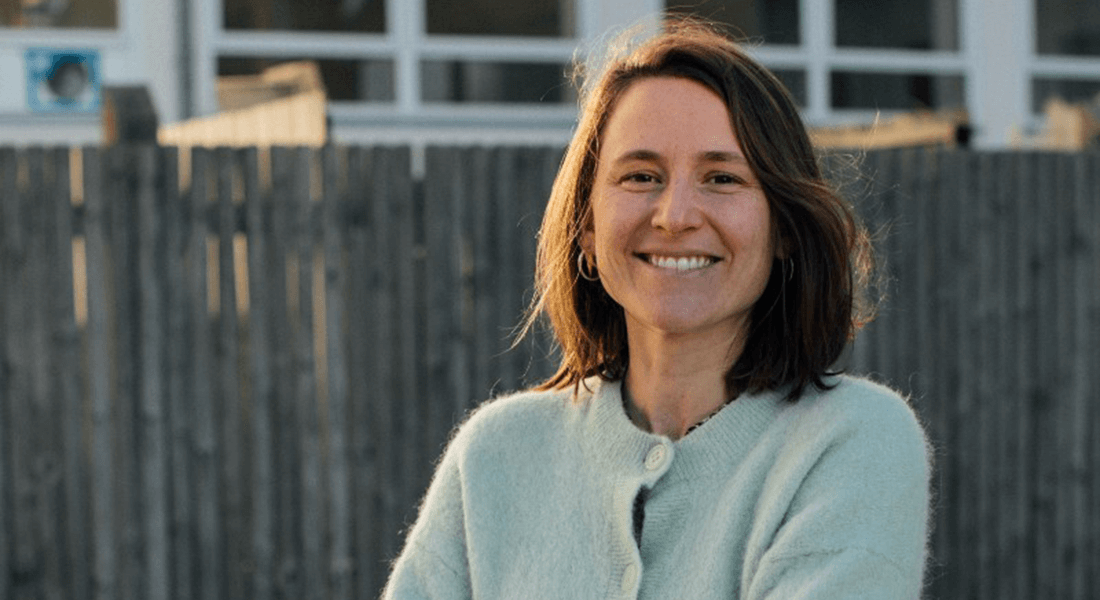Maria Marti Castaner: Preventing mental health challenges among migrants
Meet Maria Marti Castaner, an Assistant Professor at the Section of Health Services Research, University of Copenhagen. Maria investigates disparities in mental healthcare to prevent mental health problems, and to better promote mental well-being, especially among people with migrant backgrounds.

Tell us about your research
I investigate disparities in mental healthcare and work on developing and evaluating interventions within health and social sectors to prevent mental health problems and promote mental well-being, with a special focus on people with migrant backgrounds. I am currently working on several projects, but I am particularly excited about two of them.
My new project, MATER, employs participatory methods to explore how migrant women in Denmark experience their mental health postpartum. We adapt an internet-based intervention for women with postpartum depression, investigating the potential and limitations of digital approaches to bridge the maternal mental health treatment gap that immigrant mothers face in high-income countries – a gap I have documented in my prior work. With an increased focus on digitalizing mental health care, we need to look at it critically and ensure it will not bring more inequities in care.
I am also very excited about a project with colleagues in Tunisia, Spain, and Colombia that I am leading. This collaborative project aims to uncover the drivers and effects of maternal health and mental well-being among forcibly displaced women. Our goal is to develop better intersectoral maternal and infant care models grounded in the experiences of mothers themselves. Though it is currently a small pilot project, we hope it will grow.
Why is this research important?
Migrants often face unique stressors such as discrimination, socioeconomic challenges, stringent migration policies, cultural dislocation that can challenge their mental health and wellbeing and their capacity to thrive in a new environment. On top of that, it can be quite challenging to navigate a new healthcare system when you are seeking mental health support.
This is why developing tailored interventions and collaborating across countries and disciplines can help us reduce mental health disparities and improve their well-being. Using participatory methods also ensures that the voices and experiences of people with migrant backgrounds are heard and integrated into developing interventions, making the research more relevant and effective. This is even more important now, given the growing political rhetoric that criminalizes migrants from particular regions, which may result in even more restrictive migration laws.
What excites you about your work and your research?
What keeps me motivated is the combination of engaging in conversations with colleagues from diverse fields, reading the latest research, and being in the field, directly interacting with the people we aim to support.
For instance, we've recently started a collaboration with a social organization that supports women from ethnic minority backgrounds in Denmark. Together, we are organizing an event to discuss mental health and motherhood as part of a participatory project investigating digital interventions for postpartum depression. Although I now spend more time in my office than in the field, being involved in such activities and mentoring younger researchers keeps me grounded and enthusiastic about my work.
Which achievements do you hope to see within your research field 10 years from now?
Well, this may sound too naïve, but I hope we have become better at reducing the structural injustices that migrants face daily, leading to better mental health and well-being. I hope we will have worked together across fields and with policy makers to addressed issues like discrimination, institutional racism, and migration policies that cause daily stress and uncertainty.
In my work, I aspire for any parent experiencing distress during pregnancy and postpartum to find psychosocial support tailored to their needs, regardless of their background, socioeconomic status, or language. In my work in Denmark, I’ve often heard health nurses mention how mothers who aren't fluent in Danish or English struggle to find psychological support. In ten years, I imagine a reality where mental healthcare is truly universal yet flexible enough to adapt to our diverse society, and works across the healthcare and social sectors.
What advice do you have for junior researchers in global health?
Something I have been discussing lately with my colleagues is how as global health researchers, we often talk about decolonizing the field, yet we may inadvertently contribute to its perpetuation. It’s crucial to constantly question our work, even if it’s uncomfortable.
Something that I wish I had done before is to look beyond my own discipline. Push the boundaries of how I was trained years ago. I work in a section with colleagues from diverse backgrounds – anthropology, sociology, philosophy, social psychology, and medicine – and I’m trained as a clinical psychologist. Engaging with them and how they think, the methods they use, has expanded my knowledge and made me a better researcher. It can sometimes be overwhelming, but it’s ultimately a source of inspiration.
Imagine sitting with an anthropologist, a philosopher, and a doctor talking about feminism, motherhood, and mental health! Can it get better?
What is your favourite source of global health inspiration and knowledge?
Choosing just one is difficult! My inspiration comes from my experienced colleagues, the fresh perspectives of our students, and interactions with social organizations that work with migrants daily. I must also mention the Global Health Film Days at UCPH.
As researchers, we often rely on scientific publications, but there’s so much more out there. For instance, Erminia Colucci’s work as a Visual and Cultural Psychologist is fascinating; she uses participatory photo and film-documentary methods in applied public research.
I also recently read "Rethinking Global Health" by Rochelle A. Burgess, which I highly recommend. The book addresses the uncomfortable truths of global health, illustrating the complex power dynamics in the field and offering a vision for a better future based on Burgess’s experiences as a community health psychologist.
Contact
Maria Marti Castaner, Assistant Professor, Section of Health Services Research, University of Copenhagen
